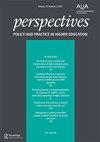Gestalt closure strategies for rendering personified images of Moon, Sun, Love, and Death in poetry translation into Ukrainian
Q2 Social Sciences
Perspectives: Policy and Practice in Higher Education
Pub Date : 2022-11-02
DOI:10.1080/0907676X.2022.2052121
引用次数: 0
Abstract
ABSTRACT This work highlights the translation strategies motivated by the matrices of the national poetic mappings of the world in the original and recipient cultures. Its purpose lies in displaying the immediate connection between the patterns of translators’ reframing the poetic source images and the conceptual structure of prototype gestalts that have taken root in the source and target poetic traditions. The methodological instrument of revealing and describing this link has been found in the conceptual analysis of images within the framework of the English and Ukrainian poetic models of the world and in the application of the gestaltist laws of Prägnanz and Closure that appear to be efficient in elucidating the motivation of translatorial decisions in case a complex source image presents a considerable translation problem due to its inviolable links with specific conceptual schemas ingrained in the target poetic worldview. The paper delineates the cognitive underpinnings of translators’ decisions in the situations of limited translatability of the source-personified images conditioned by their culture-bound gender characteristics. Although the research is performed on the basis of two concrete poetic worldview systems, it investigates universal cognitive regularities of literary translation as gestalt principles state the general rules of human perception.乌克兰文诗歌翻译中月亮、太阳、爱情和死亡拟人化意象的格式塔闭合策略
摘要:这部作品强调了在原始文化和接受者文化中,由世界的民族诗歌映射矩阵所驱动的翻译策略。其目的在于展示译者对诗歌源意象的重构模式与植根于源诗歌传统和目标诗歌传统的原型格式塔的概念结构之间的直接联系。揭示和描述这种联系的方法工具已经在英国和乌克兰世界诗歌模型框架内对图像的概念分析中找到,并在Prägnaz和Closure的格式塔定律的应用中找到,这些定律似乎能够有效地阐明在复杂的源图像呈现由于其与目标诗歌世界观中根深蒂固的特定概念图式之间不可侵犯的联系,翻译面临着相当大的问题。本文阐述了在源人格化图像可译性有限的情况下,译者决策的认知基础。尽管这项研究是在两个具体的诗歌世界观体系的基础上进行的,但它考察了文学翻译的普遍认知规律,因为格式塔原则陈述了人类感知的一般规律。
本文章由计算机程序翻译,如有差异,请以英文原文为准。
求助全文
约1分钟内获得全文
求助全文
来源期刊

Perspectives: Policy and Practice in Higher Education
Social Sciences-Education
CiteScore
2.50
自引率
0.00%
发文量
24
 求助内容:
求助内容: 应助结果提醒方式:
应助结果提醒方式:


